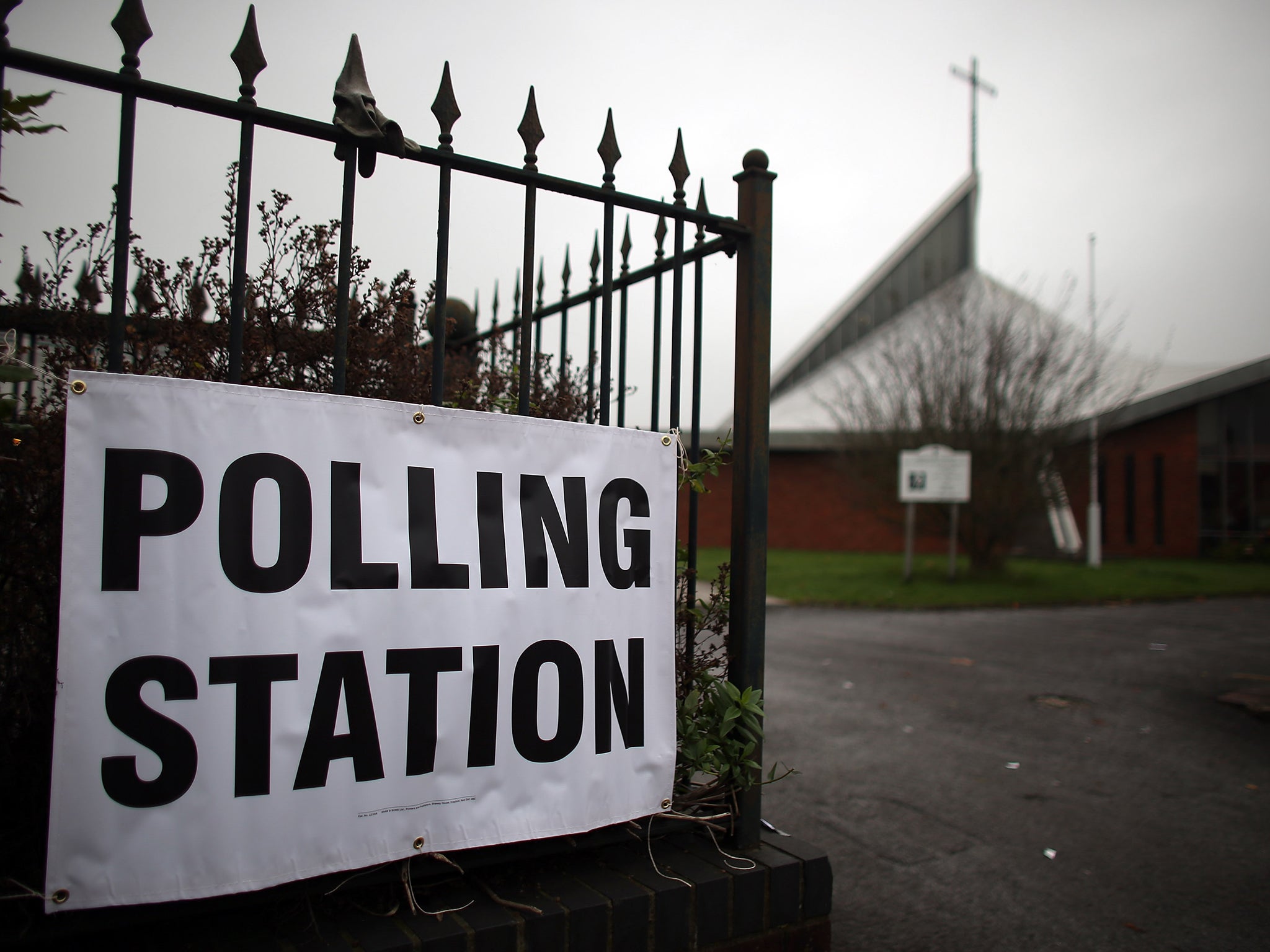Government to spend £500,000 persuading students to register to vote
Electoral Commission finds fewer young people registering

Your support helps us to tell the story
From reproductive rights to climate change to Big Tech, The Independent is on the ground when the story is developing. Whether it's investigating the financials of Elon Musk's pro-Trump PAC or producing our latest documentary, 'The A Word', which shines a light on the American women fighting for reproductive rights, we know how important it is to parse out the facts from the messaging.
At such a critical moment in US history, we need reporters on the ground. Your donation allows us to keep sending journalists to speak to both sides of the story.
The Independent is trusted by Americans across the entire political spectrum. And unlike many other quality news outlets, we choose not to lock Americans out of our reporting and analysis with paywalls. We believe quality journalism should be available to everyone, paid for by those who can afford it.
Your support makes all the difference.The government is to spend £530,000 on a last-minute drive to persuade students to put their name on the electoral register so they can vote at May’s general election.
The move follows criticism that thousands of students could be disenfranchised as a result of a switch from household to individual voter registration. Under the previous system, universities put students living in halls of residence on the electoral roll but they now have to sign up individually.
In an interview with The Independent, Sam Gyimah, the Cabinet Office Minister responsible for elections, rejected Labour’s claim that the Government did not want students to vote because they were unlikely to back the Conservatives. He said: “Talk of a missing million [voters] is a misnomer. It is political scaremongering by Labour.”
But Labour argued that its criticism was vindicated by figures published today by the independent Electoral Commission. They showed 920,000 fewer entries on the register in December than in February and March last year, a drop of about two per cent. The commission found that students, 16 and 17 year-olds and people who had moved home were “under-registered”.
The Government insisted the commission’s “shapshot” was already out of date because two million people had applied to register since December, including 100,000 aged 16 and 17.
Mr Gyimah said: “Nine out of 10 people were automatically transferred to the new system. We are making every effort to ensure the remaining 10 per cent are on the register. I don’t believe it automatically disenfranchises students, as Labour says. We have done a lot to make it easier for students to register.”
He said the National Union of Students will receive £380,000 from the government to encourage registration and would run a competition to find the best ideas for persuading students to join the roll. A further £150,000 will be shared by other organisations in the further education sector.
Mr Gyimah said: “There is a whiff of hypocrisy about Labour’s criticism. There is cross-party support for the transition to individual voter registration. The Labour Party introduced the legislation because the register was 15 per cent inaccurate.”
He pointed out that its accuracy was improving all the time with 35,000 applications a day to join it. He said it took only between three and five minutes to register online at gov.uk/register-to-vote.
Government officials believe one reason for the drop in the number on the list is that many students were registered in two places under the old system – at their family home and their university.
Mr Giymah said there should be a debate about whether 16 and 17-year-olds should be given the vote. The move is backed by Labour and the Liberal Democrats, but opposed by the Conservatives.
The 38 year-old minister believed that online voting would probably be introduced “one day – and in my lifetime”. But he rejected calls to make voting compulsory to boost turnout.
He said: “Politicians should not reach for such reforms as an alternative to enthusing people to vote. The Scottish referendum [which saw an 84 per cent turnout] used a traditional method of voting. We have to enthuse people to get engaged with the democratic process.”
Sadiq Khan, the shadow Justice Secretary, said: “Ed Miliband warned weeks ago that nearly one million voters had disappeared off the register and the commission’s figures published confirm Labour’s worst fears. They are a direct consequence of the way the Tories and Liberal Democrats hastily forced through changes to the way people register to vote.”
He added: “This is a disaster for our democracy. The result of this general election will have huge consequences for the young. But it is precisely these young voices which are being silenced.”
Join our commenting forum
Join thought-provoking conversations, follow other Independent readers and see their replies
Comments